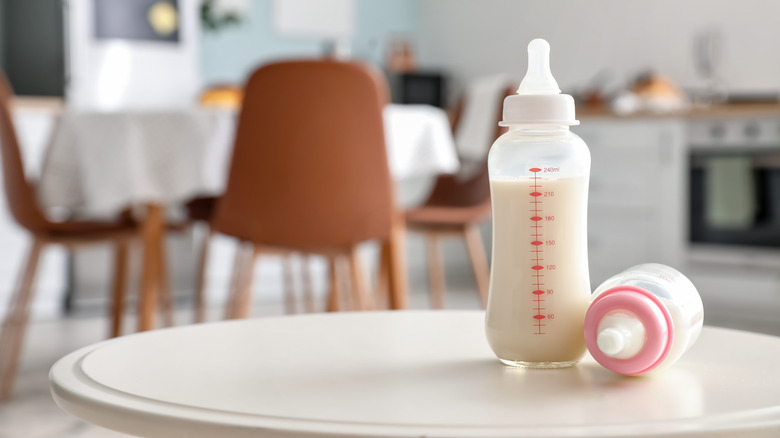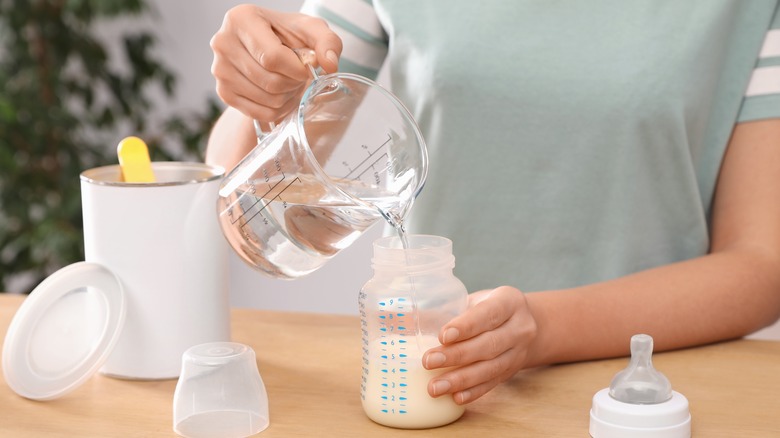The Dangers Of Making Your Own Infant Formula
Amidst the nationwide shortage of infant formula, many parents are scrambling to find suitable alternatives to feed their young children. As a matter of fact, some are even turning to the internet and social media for solutions (via Bloomberg). As a result, internet searches for homemade infant formula have skyrocketed within the past few days, in addition to the number of DIY formula recipes circulating on social media.
Some of these DIY recipes being shared on social media platforms like TikTok, Facebook, and Twitter are simple, involving mixing water with cow's milk. However, others call for a wide range of unusual ingredients, including liquid whey and cod liver oil. Now, doctors are warning against the use of any DIY formula recipes. That's because homemade baby formula is unregulated and can come with a number of serious health risks. "Do not make your own formula at home," Florida pediatrician Dr. Mona Amin told Bloomberg. "As tempting as it can be, [there are] no safeguards that it's safe, that it's nutritious."
Why homemade infant formula isn't safe
According to experts at Good Housekeeping, homemade infant formula recipes often don't have the same amount of critical nutrients as commercial formulas. In fact, one of the reasons infant formula is so heavily regulated by the US Food and Drug Administration (FDA) is because an inadequate amount of vital nutrients in baby formula can lead to nutrient deficiencies, which pose a serious risk to the overall growth and development of infants.
In fact, a 2021 case report published in the journal Pediatrics found that the consumption of homemade formula led to severe and life-threatening complications in two unrelated infants, resulting in vitamin D deficiency rickets, seizures, and cardiac arrest. On the flip side, homemade formulas also run the risk of having too much of a given nutrient. For instance, formulas that contain too much salt can be harmful to an infant's kidneys. Not to mention, homemade infant formula isn't sterile, which means that it is more susceptible to bacterial contamination. Such contaminants can cause infections and life-threatening illnesses.


